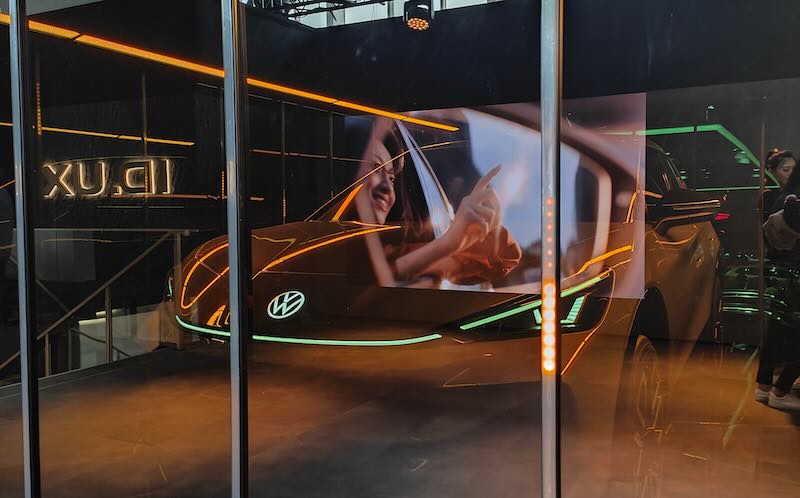The $5 billion partnership between Rivian and Volkswagen Group has reached a pivotal milestone, with the R2 platform technology now designated as the digital foundation for every upcoming electric vehicle across Volkswagen’s portfolio.
This expansion represents a significant evolution from the original partnership scope. Rather than limiting Rivian’s technology to specific models, Volkswagen has committed to integrating the R2 platform architecture across its entire electric vehicle lineup, spanning multiple brands and market segments.
Rivian’s Chief Software Officer confirmed that the modular R2 platform will support all future Volkswagen electric vehicles, bringing scalable technology solutions to the German automaker’s diverse brand ecosystem. Platform’s modular design allows customization while maintaining core functionality across different vehicle types.
Brands including Audi, Porsche, Scout, Lamborghini, Skoda, and SEAT will all utilize the R2 platform as their foundational technology stack. Standardization approach enables cost efficiencies while preserving each brand’s distinct character and user experience.
Despite sharing common underlying technology, each Volkswagen brand will maintain its unique interface design and driving characteristics. R2 platform serves as an invisible foundation that enables brand-specific customization at the user-facing level.
This approach addresses concerns about technology standardization potentially diluting brand differentiation. By separating core platform functionality from user experience design, Volkswagen can achieve operational efficiency without compromising brand identity.
Volkswagen’s internal software division, Cariad, has struggled with performance issues that led to multiple restructuring efforts, Volkswagen cuts 1,600 jobs at Cariad software unit amid lost $7.5B over the last 3 years. Challenges created operational disruptions that affected vehicle availability and regulatory compliance.
Last year, Volkswagen temporarily suspended sales of several models across Europe due to cybersecurity regulation failures. Affected vehicles included multiple Audi models, Porsche sports cars, and Volkswagen commercial vehicles, demonstrating the widespread impact of software deficiencies.
The decision to standardize on Rivian’s R2 platform represents a broader strategic shift than initially anticipated. Original partnership discussions focused on specific vehicle applications rather than company-wide technology adoption.
This expanded scope suggests Volkswagen’s confidence in Rivian’s software capabilities and recognition that internal development timelines couldn’t match market demands. Partnership allows Volkswagen to accelerate its electric vehicle rollout while leveraging proven technology solutions.
With Rivian’s R2 platform now driving the future of Volkswagen’s electric lineup, this partnership has truly reached its full potential.
Related Post
Volkswagen Returns to Physical Buttons After Customer Backlash Against Touchscreen Controls
Volkswagen ID.3 GTI: Classic Performance Badge Gets Electric Rebirth in 2026
Rivian Launches Also Inc: Spin-Off Venture Focused on Electric Micromobility Solutions
